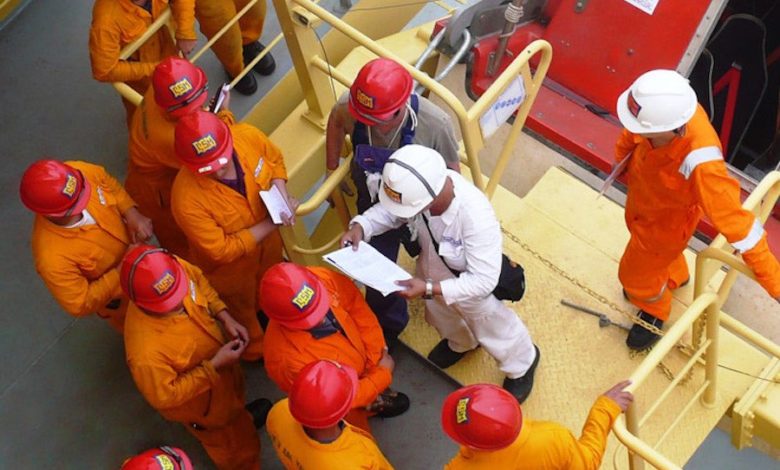Crews asked to extend contracts as Ukraine crisis takes its toll at sea

The crew change crisis is set to worsen with the first week of the Russian invasion of Ukraine showing little sign of a swift end to the conflict.
According to BIMCO data from last year, 198,123 (10.5%) of seafarers are Russian, while Ukraine accounts for 76,442 (4%).
With crew movement impossible out of Ukraine and becoming much harder logistically for Russians too, shipmanagers have started to ask their staff at sea to extend their current contracts to fill any immediate gaps.
Managers are also having to grapple with how to handle mixed ship and shore staff, with plenty of offices and vessels around the world featuring workforces containing both Russians and Ukrainians.
The potential for conflict ashore and on our vessels is there
Reports are also emerging of Russian and Ukrainian crews seeking asylum requests in greater numbers in the US. The US and particularly Houston says it is unable to accommodate these requests and as there is no mechanism in place to accommodate such requests officials from the Customs and Border Protection have occasionally been imposing crew detention onboard measures to prevent crew from deserting in recent days.
At a webinar yesterday hosted by InterManager, the association for third-party managers, attendees discussed the potential “tinderbox” conditions for many at sea, watching the war from afar.
“On the vessels where many of our officer contingents are mixed as this thing gets more nasty there will be problems,” said Mark O’Neil, the president of both InterManager and Columbia Shipmanagement, adding: “The potential for conflict ashore and on our vessels is there.”
Henrik Jensen, who heads up Danica Crewing Specialists, which focuses on Eastern European seafarers, revealed there had already been one incident onboard involving a mixed Danica crew.
Natalie Shaw, director of employment affairs at the International Chamber of Shipping, warned: “The current good will among crew to be friendly with each other is going to deteriorate drastically in the next few days without any question as people start to hear about their families being affected – that is when I think it is going to become much more fractious onboard.”
Columbia’s O’Neil stressed it was very important not to demonise Russian seafarers.
“This is not a Russian war, this is a Russia war and we’ve got to look after the interests and worries and sensitivities and shame of our Russian seafarers and colleagues as well,” O’Neil said.
The managers also discussed a number of Ukrainian crew keen to end their contracts early to go home to fight. Moreover, given that men between the age of 18 to 60 years are not allowed to leave Ukraine and airports and ports are closed there is no chance of replacing those returning home with fellow countrymen.
Columbia Shipmanagement has asked all crews to delay rotations to help in the immediate future with crew shortages from Ukraine and Russia.
Issues with pay to Russian crew with many banks sanctioned were highlighted during the hour-long webinar.
Managers also discussed pooling cash to send money to families of Ukrainians ashore, especially for the families that have fled, leaving their seafaring men behind to fight.
International Maritime Organization secretary-general Kitack Lim repeated over the weekend his message to keep seafarers safe from the conflict.
“Shipping, particularly seafarers, cannot be collateral victims in a larger political and military crisis – they must be safe and secure,” Lim said as reports of cargo ships coming under attack in the Black Sea filtered in.
For all the news on how the invasion of Ukraine is affecting global shipping, check out Splash’s dedicated coverage here.
